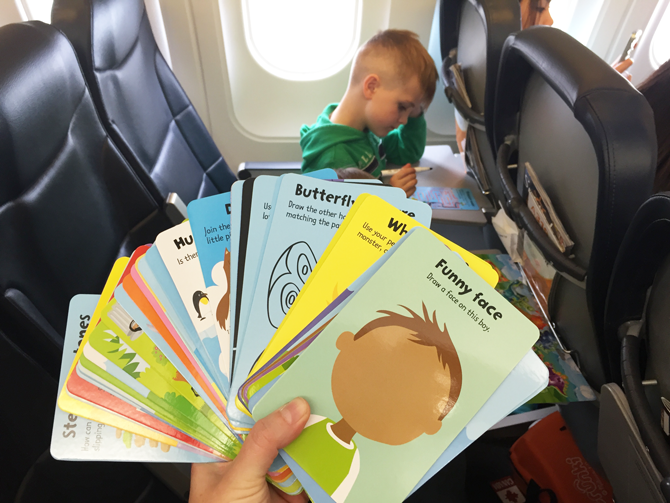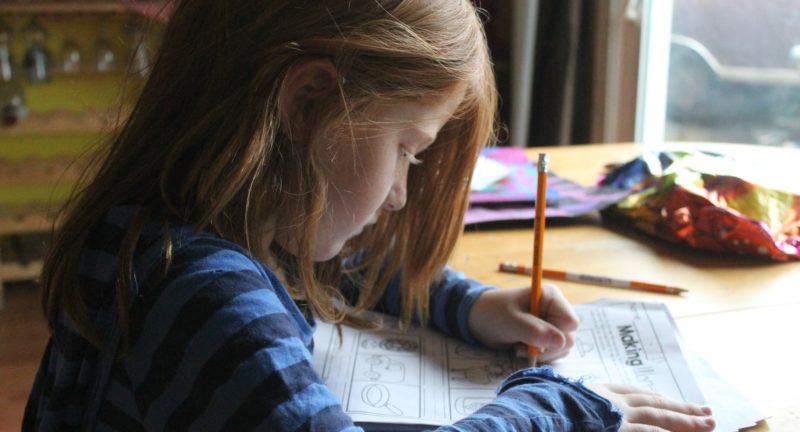
Traveling with a Pre-School Age Hyperactive Child Abroad
This summer my wife, Kristi Briscoe, M.D., and I brought our two boys along with us on a 10-day trip abroad to Paris and Southern France. Our oldest, “E” is seven and was very excited to see “mummies” and several other items of interest in the Louvre. “E” had never traveled abroad, but had done okay with long distance travel across U.S. in the past.

Our youngest – we will call him “H” – is four years old and really wanted to see the “big tower” (Eiffel Tower). However, we were a bit hesitant because ‘H’ is the quintessential energizer bunny. “H” does not have an OFF button, or even a PAUSE button – just FAST FORWARD and SUPER FAST FORWARD buttons that are kinda stuck in the ON setting all the time. And the more tired “H” gets the more energy he seems to get. He also suffers from ICD: otherwise known as ‘Intermittent Climbing Disorder'(humor) characterized by intermittent and unexpected episodes of climbing over railings, onto chairs, on top of tables, and other various places where children and most 2 legged creatures normally are not intended to place their legs or feet.* Needless to say we were not quite sure how this was going to work out on an oversees trip, with all the airports, airplanes, time zone changes, jet lag, metro stations, train stations, small hotel rooms, crowds, restaurants, foreign etiquette, etc.
After much deliberation and second guessing ourselves, we went ahead and decided to take both “E” and “H” along for the trip.
Ultimately, the trip was OKAY overall. If we had to do it all over again, however, I think that we might consider forgoing Paris until the youngest (“H”) was older. Personally, I think that he would have been more able to appreciate Paris if he was at least 8 years old. Although the children enjoyed going up the Eiffel Tower, seeing ‘mummies’ in the Louvre, and the playground of the Luxembourg Gardens, they did not get a whole lot out of Paris. Luckily, my family spent the majority of our time in a more rural area of Southern France (where my wife and I were completing some continuing medical education) and the children had opportunity to run and play more freely, ride bikes in the countryside,and swim in the ocean. If our time in France had been limited to Paris alone, the trip would have been a disappointment.
We did, however, use the trip to make some useful observations and can provide some useful suggestions for those considering traveling abroad with young children who struggle with hyperactivity:
Anticipate Jet Lag: Western Europe is 6 hours ahead of Eastern Standard time, so it may help to begin gradually adjusting your family’s bedtime to an earlier time beginning several weeks in advance. For the first 3-7 days after arriving to Europe and after returning to the U.S., you and your children may find it helpful to take Melatonin to assist with the transition in time zones. Note that the dosing for Melatonin for children is very different than the dosing for adults often indicated on over the counter Melatonin supplements. We recommend that you contact your pediatrician or discuss with a child psychiatrist for proper dosing instructions. Adults should likewise discuss with their medical doctor.
Anticipate that your hyperactive child may be more hyperactive as he/she adjusts to the new time zone. Lack of sleep can significantly worsen hyperactivity. He/she will also be excited with the new environment. As he/she gets caught up on sleep and adjusts to the new schedule things should improve. Just be extra patient with your child, and be careful with your own irritability – a lack of sleep on your own end may render you more irritable and less patient, especially on the first day of your arrival after a long overnight flight.
Try to get some sleep on the plane: Most flights to Europe depart the U.S. in the evening and arrive in Europe in the morning. If you can afford First Class or Business Class seats with seats that recline to complete horizontal, go for it; but most families (including us) find such accommodations cost prohibitive and need to try to find a way to sleep while sitting upright in standard coach sections of the plane. We recommend that you spend some time searching online for the various creative solutions that you can purchase online to help solve the problem of trying to sleep in upright seats.
A variety of products, ranging from forward-leaning pillows to between-seat hammocks are available. Verify with your pediatrician that the products will be safe for you child. Also, consider consulting with your pediatrician (or child-psychiatrist) and your own doctor regarding options for sleep aids that may help during the flight.
Anticipate that your child(ren) will be very tired the first day, regardless of whether or not they slept on the plane. Do not plan many activities on the day of your arrival. My family planned only one activity on our day of arrival in Paris – a leisurely 1.5 hour bus tour of the city around mid-day after dropping the bags off at the hotel. No walking. Go to bed early the evening of the first day to catch up on sleep. Melatonin may help get everyone on sync with the new time zone.
Pack Light: There is nothing worse than chasing a hyperactive child around an airport or train station while simultaneously trying to manage excessive amounts of luggage. Better to wear the same clothes several days in a row than throw out your back. Europeans don’t insist on wearing freshly washed clothes like we Americans do, but you can always wash your own clothes once you arrive if you insist.
Pack ADHD medication: If your child is taking medication for ADHD, do not forget to pack his/her medication. Place the medication in its original container from the pharmacy so you do not have any trouble with customs. Always pack your your medication and your children’s medication in your carry on and not your checked bags in the event that your luggage is delayed. And make sure to give your child his/her medication everyday. This is not a good time to have your child take a vacation from medication.
-If you are traveling to Paris or other major tourist city, do NOT focus on seeing all the tourist highlights. Dragging a hyperactive child through museums and all over a city sightseeing will prove to be a very unpleasant experience for all members of your family – including you. If you want to do the hardcore ‘tourist thing’ you should come back to the city another time without your children. You will be better off this time picking no more than ONE tourist highlight to check out on a single day, and make the ENTIRE rest of your day focused on doing activities geared strictly towards the children’s interests.
-Visit parks where the children can run freely to burn off energy. Purposely seek out playgrounds. Search out ‘children’s activities’ for the city you are exploring online and stick to activities that will keep the kids running, playing, laughing, and enjoying themselves. Do some ‘people watching’ while you keep and supervise your children. You will be pleasantly surprised to learn that you will still enjoy your time and get a taste of the atmosphere of the city and more genuine feel of the foreign culture as you play with your family alongside the local families in their ‘real’,’non-touristy’ neighborhood parks and playgrounds.
Introduce your children to foreign language and teach them about foreign culture. If you have an iPhone or Android device, consider downloading several apps months in advance of your trip that teach children some basic vocabulary of language spoken by the country they will be traveling to. Start teaching them some basic vocabulary over dinner conversation and start to teach them a few facts about foreign culture. If you do not know these facts or the language yourself, this can make for a great learning experience for your entire family to embark upon together! Your taking the first step in moving outside of your comfort zone to learn something new will be setting a good example for you child and may even open up new opportunities for them in the future.
*Intermittent Climbing Disorder is not a real medical disorder – it is only a term made up by the author of this article for the purpose of facilitating humor.
Related Posts
7 Tips for Creating a Homework Station for Your Child with ADHD + Printable Homeschool Schedules
By now, we've had a few weeks to get used to working and schooling at home....
Does Your Child Have ADHD? Here Are 4 Surprising ADHD Symtpoms in Kids
Attention deficit hyperactivity disorder — most often referred to simply as ADHD...


